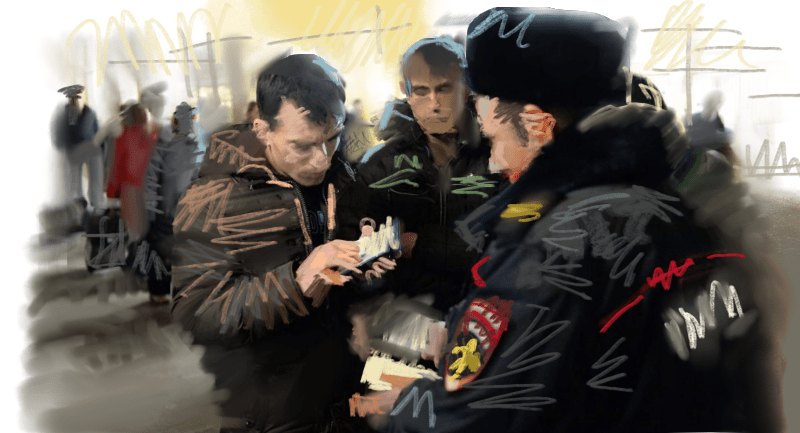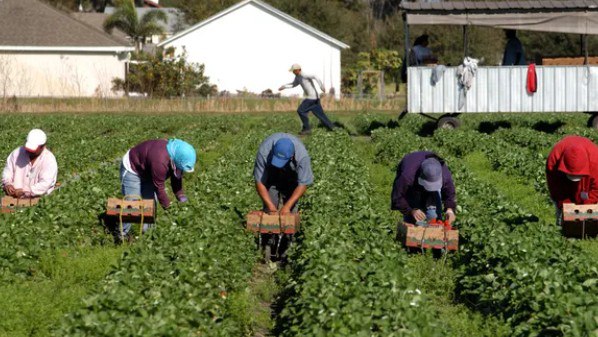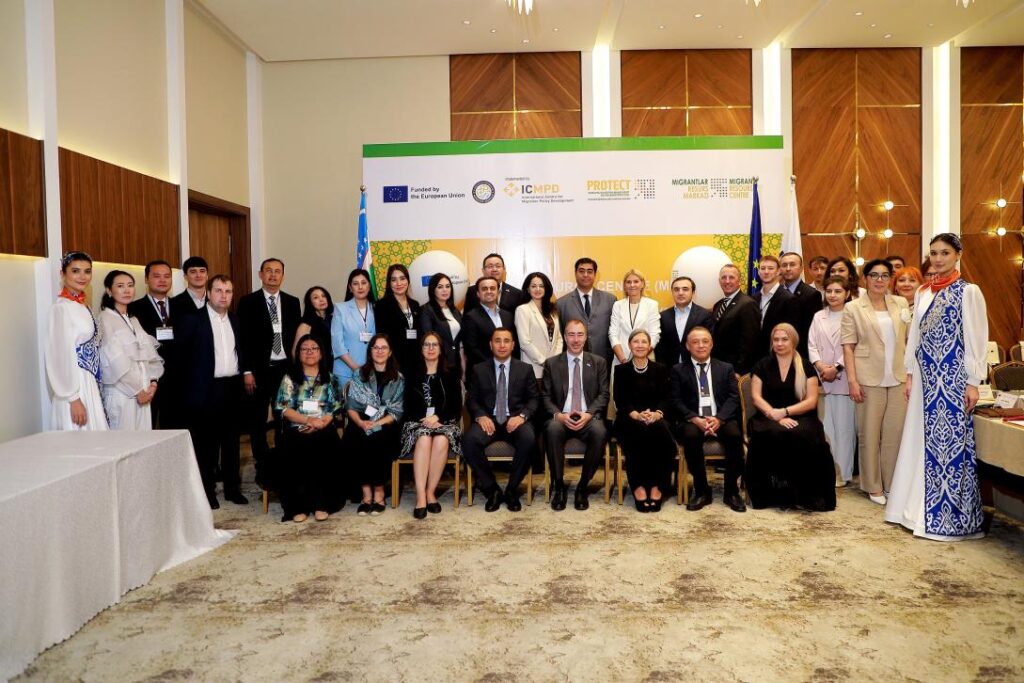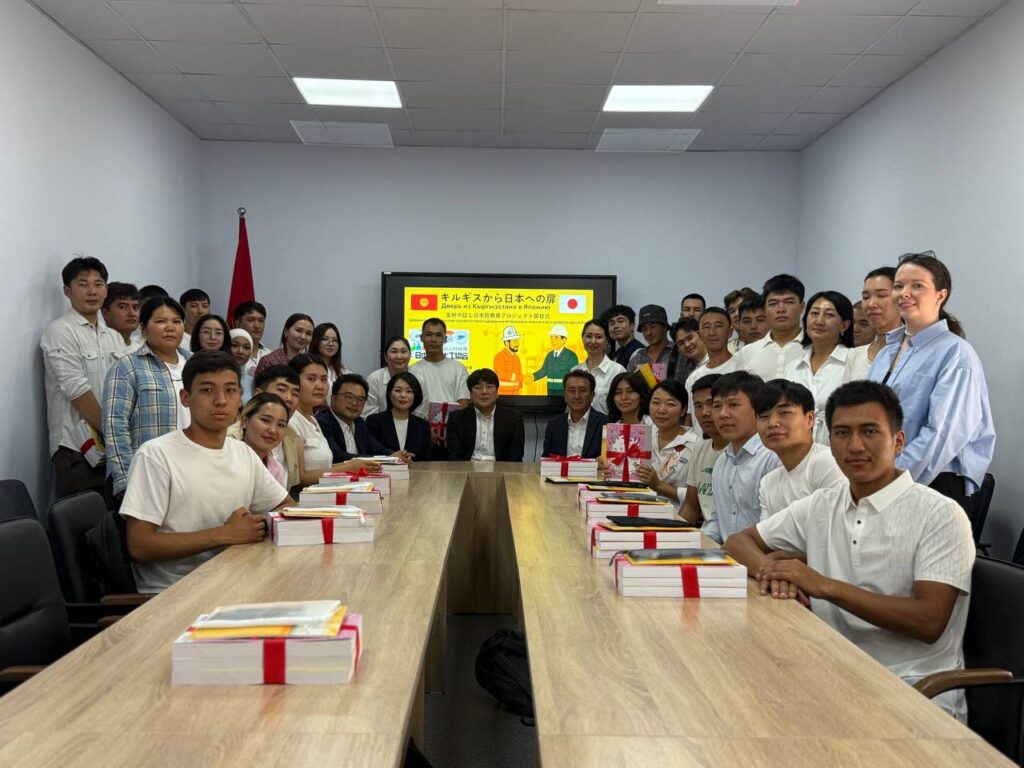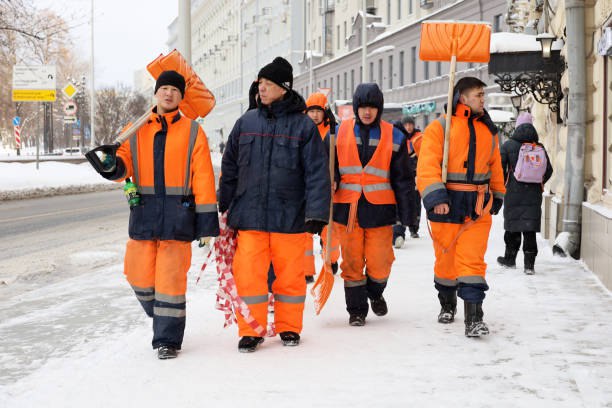As previously reported by TCA, in the wake of the terrorist attack on the Crocus City Hall on the outskirts of Moscow which left 144 dead and 551 injured, Central Asian migrants in Russia have been living in a climate of fear. “There is panic, many people want to leave [Russia],” Shakhnoza Nodiri from the Ministry of Labor of Tajikistan said of the outflow of labor migrants. “We are now monitoring the situation; we have more people coming [to Tajikistan] than leaving.”
One of the most remittance-based economies in the world, in 2023 official figures released by the Ministry of Labor, Migration and Employment of Tajikistan – often underestimated – stated that 652,014 people left the country to work abroad, largely to Russia. According to the World Bank, in 2022 remittances made by migrants accounted for 51% of the country’s GDP.
As anticipated, despite the U.S specifically warning the Russian authorities that the Crocus City Hall was a potential target, whilst seeking to lay the blame for the attack on Ukraine, the Russian Government is intensifying its control over migrants. On April 1, a Ministry of Internal Affairs’ spokesperson announced that the regulations will include mandatory fingerprinting and photographing of all foreigners upon entry into Russia, a reduction in the legal duration of stay from 180 days to 90 days, and the registration of migrants and their employers. In addition, whereas in the past a migrant could only be deported following a court’s decision, this will no longer be the case.
Against this backdrop, on April 3, the Davis Center at Harvard University hosted a seminar entitled, “The Crocus City Hall Terror Attack and Its Repercussions for Central Asians and Central Asia.”
Opening the discussion, Yan Matusevich, a Ph.D. Candidate in Cultural Anthropology at the Graduate Center of the City University of New York, highlighted the fact that the “migration system has been in place for a very long time [and] the Central Asian migrant community in Russia has lived through crisis after crisis. But there are not a lot of alternatives out there,” he started, “so it’s really hard to disentangle oneself from that. It’s been difficult for migrants for a long time, but they also know how to navigate the system, as violent and oppressive as it is.
“Migrants are also under a lot of pressure to join the war effort, because a lot of Russians have left fleeing mobilization. Migrants are very resilient, though, and paradoxically, because there is such a major labor deficit in Russia, there are a lot of employment opportunities. Bringing in brigades of migrants in uniforms who are completely segregated and work in slave-like conditions would be the Russian ideal, but the problem is the reality doesn’t match up given the dependence on migratory labor.”
Malika Bahovadinova, a Post-Doctoral Fellow at the University of Amsterdam, addressed the “ambiguity” migrants face over whether their “status is legal or illegal.” Criminalization of migration laws has been a trend since 2013, she argued, with increased tracking of foreign citizens. “Tajiks are the most marginalized group in Russia; it’s hard to be documented in Russia,” she stated. “For migrants from Uzbekistan and Tajikistan, this involves a very complex procedure of trying to pay on time every month and tackling your registration… Stickers have appeared around Moscow which read ‘Bring our husbands home and kick the Tajiks out.’ [With] increased racial profiling, deportations and detentions, one of my respondents is thinking about dying his hair blonde in order to be able to blend a little bit in the crowd. Most migrants have a strategy of waiting it out, though, thinking everything will be okay in three months.”
Focusing on Russia’s “unreliable narrative,” Noah Tucker, a Senior Research Consultant at the Oxus Society and Program Associate of the Central Asia Program at George Washington University, noted that Russia has been pushing the idea that “ISIS was created by the CIA for over a decade and acts as a cut-out, especially to Central Asian audiences. ISIS K itself makes the same claim about the Taliban, who it says are a CIA cut-out and are controlled by the Americans. So, everybody is politicizing these things to fit their own preconceived narratives.
“The last major attack inside Russia was the 2017 metro bombing. [In a] strategy of authoritarian cooperation… that was also blamed on Central Asian migrants, and the security services arrested two Uzbek brothers and sent them to jail as the direct orchestrators of the attack – only the facts never added up… One of the brothers, who was charged as being the mastermind, was lying in a hospital in Osh during the attack, and was allegedly extradited to Russia only to be arrested in a made for TV event a few weeks later.
“ISIS K have not really made any particular effort to recruit Central Asians other than to come and join their civil war inside Afghanistan, [because none of their goals] has any relevance for Central Asians migrants.”
Noting that the atrocity spoke to “extreme negligence in not preventing this attack or willful neglect in allowing it to happen,” Edward Lemon, President and CEO of the Oxus Society, stated that Tajikistan and Russia have “very close cooperation [and] perhaps that cooperation will extend to drafting a narrative [of benefit to both regimes].” Lemon characterized the Russian account of the attack as an attempt to “drive a wedge between Central Asian States and further cooperation with NATO that also allows them to sidestep sanctions.”
“There’s a utility to pushing the narrative in this direction regardless of the facts,” Tucker concluded. “The narrative that emerges is going to make it much easier to squeeze Central Asian migrants into agreeing to be mobilized into the conflict in Ukraine, whether that’s as workers digging trenches and going out under artillery fire to retrieve bodies and dig fortifications, or as active fighters in the Russian military. Russia is going to become increasingly squeezed over the next year by a lack of human capital. There simply aren’t enough Russian citizens left to continue to staff the army.”
